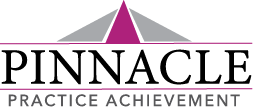Throw Away Those Old ABN Forms
On April 4, 2023, the Office of Management and Budget (OBM) approved an updated Advance Beneficiary Notice of Non-coverage (ABN) form which took effect on June 30th, 2023. The previous form could be used up until June 29th. Just to review, here is an overview of the ABN and when you should be filling it out, having your patients sign and keeping it on file. This one is good until 01/31/2026 (at least that’s what it says).
Providers, physicians, practitioners, and suppliers (notifiers) of Medicare (fee-for-service “FFS”) beneficiaries must issue the ABN Form in scenarios when the Medicare payment is expected to be denied. Medicare requires notifiers to disclose to beneficiaries before providing an item or service if the notifier anticipates that Medicare will deny payment for services (rendered for any of the reasons listed below) which would shift the financial responsibility for payment to the beneficiary. If Medicare rejects the claim, the ABN is a mechanism for notifiers to show that (1) the beneficiary knew about the potential non-coverage in advance of the services being rendered, and (2) the beneficiary agreed to accept financial responsibility for these items or services. Providers must comply with the ABN requirements, or they could be financially liable or at risk for possible sanctions.
The notifier should use an ABN when:
- Items or services are not reasonable or necessary
- Items or services violate the prohibition on unsolicited telephone contacts
- The medical equipment and supplies supplier number requirements are not met
- The medical equipment or supplies are denied in advance
- Items or services are custodial care
- It is a hospice patient who is not terminally ill
- The home health services requirements are not met (they are not confined to the home or their home, or there is no need for intermittent skilled nursing care)
- Items and services that are covered under a personalized prevention plan services that are performed more frequently than indicated under the coverage guidelines which are not reasonable and necessary for diagnosis or treatment or to improve functioning
- When a noncontract supplier provides an item included in the DMEPOS CBP for a CBA; and
- If Medicare considers the item or services to be experimental.
In my experience, the most common reasons to complete an ABN and have your patient sign is for frequency limits of Routine Foot Care (when a patient insists that you bill for nails and calluses even though it hasn’t been 61 days) and for same and similar when dispensing DME.
Here is a direct link to the new form and more information on ABNs:
